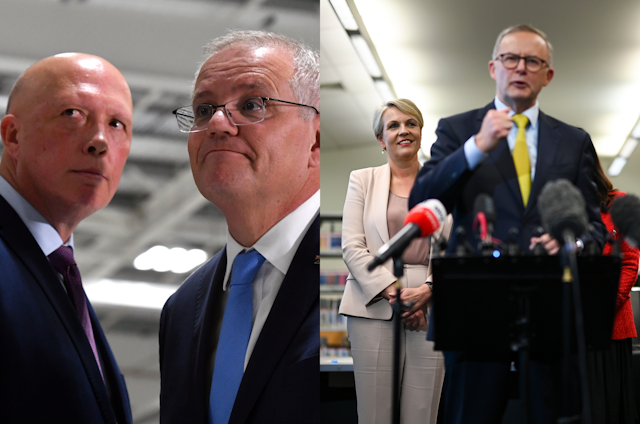An existential moment for the Liberal party? Another female leader for Labor? In this episode of our election podcast Below the Line, our expert panel talk us through what might happen to the major parties if they do not win government.
Led by award-winning broadcaster Jon Faine, the panel talks through the potential configurations of the next federal parliament, including the possible balance of power in both chambers.
Polling expert Simon Jackman analyses the latest voter surveys and tells us why a Labor victory still looks very likely at this stage. Anika Gauja maps the key contests in the Senate and the likelihood of minor parties and independents holding decisive votes.
Andrea Carson scores the final leaders’ debate and argues that Channel Seven’s format gave voters a better look at policy issues than the previous debate on Channel Nine. Some 811,000 Australians tuned in to watch Wednesday night’s event, but Faine wonders whether voters have heard enough about the issues they truly care about.
“The debate’s range of topics was still pretty narrow,” says Carson. “I think it was noted for what wasn’t debated rather than what was,” says Faine, who lists tax reform, industrial relations and Indigenous affairs as important but missing policy issues.
The panel also contemplates the Liberal party’s future if key moderates lose their seats, and whether it will move further to the right. Gauja lists the likely names to lead Labor if Anthony Albanese suffers a shock defeat on May 21.
Below the Line is brought to you by The Conversation and La Trobe University. It is produced by Courtney Carthy and Benjamin Clark.
Image credit: Lukas Coch/AAP; Mick Tsikas/AAP
Disclosure: Simon Jackman is an unpaid consultant on polling data for the Climate 200 network of independent candidates.

